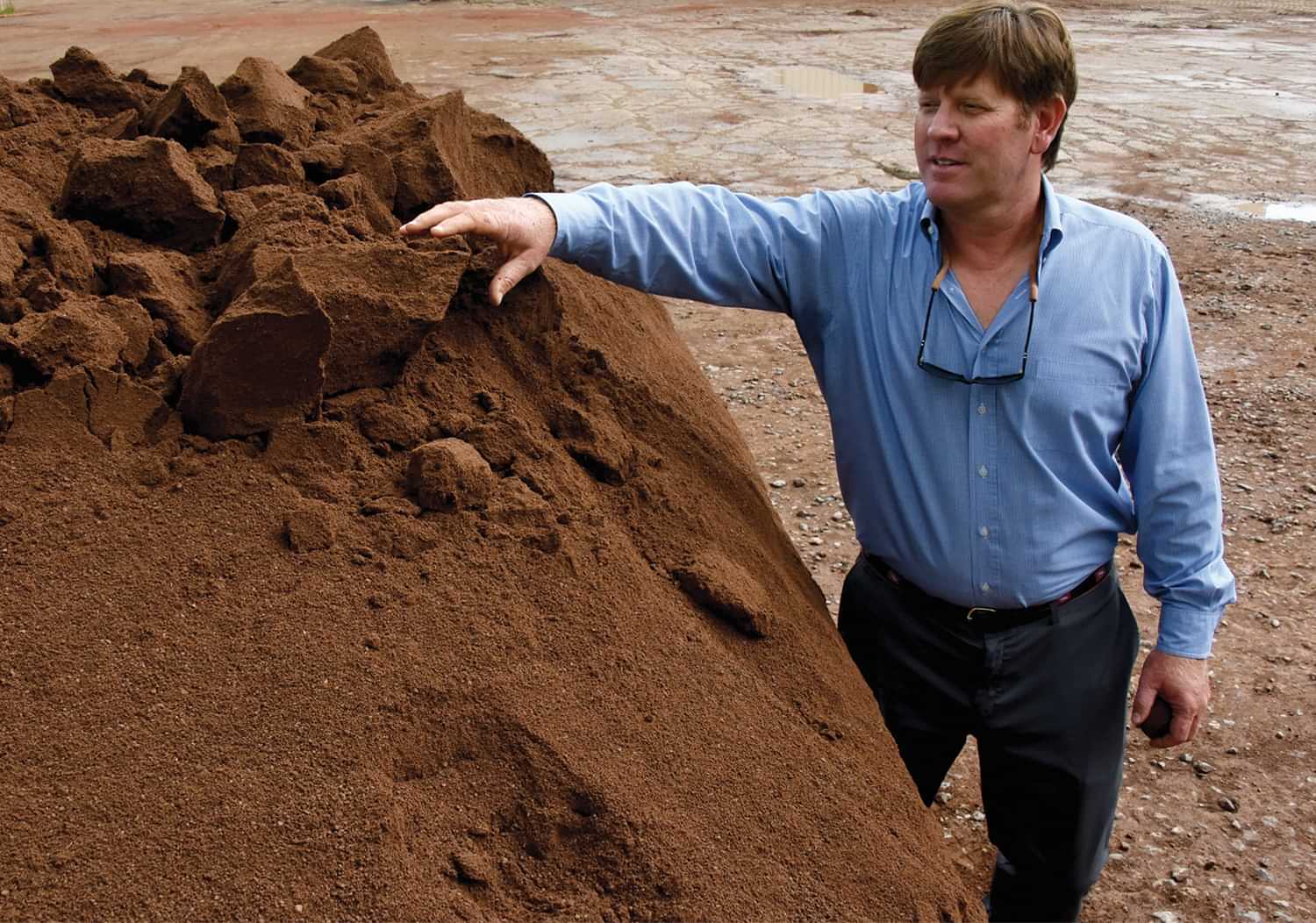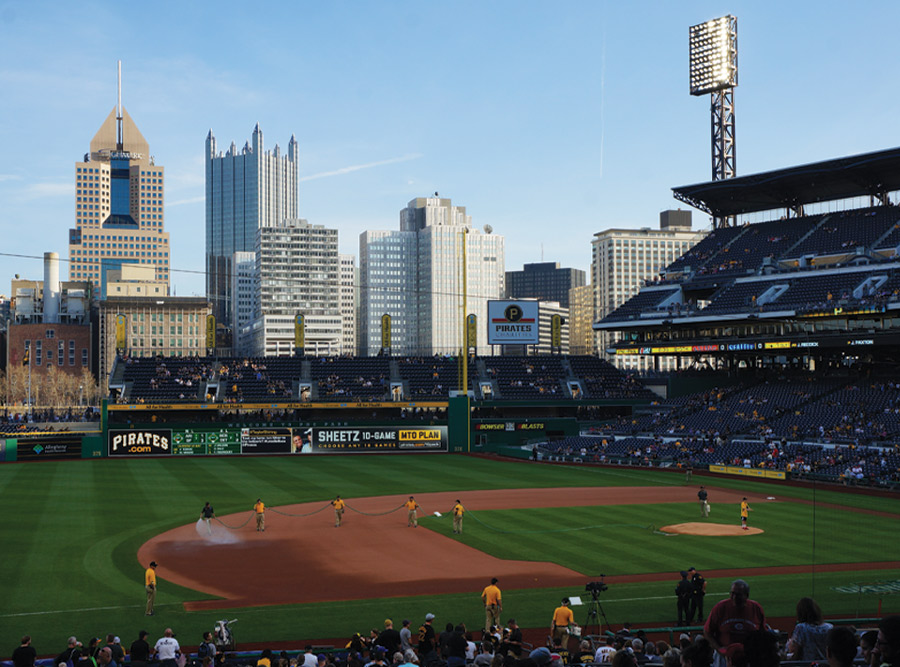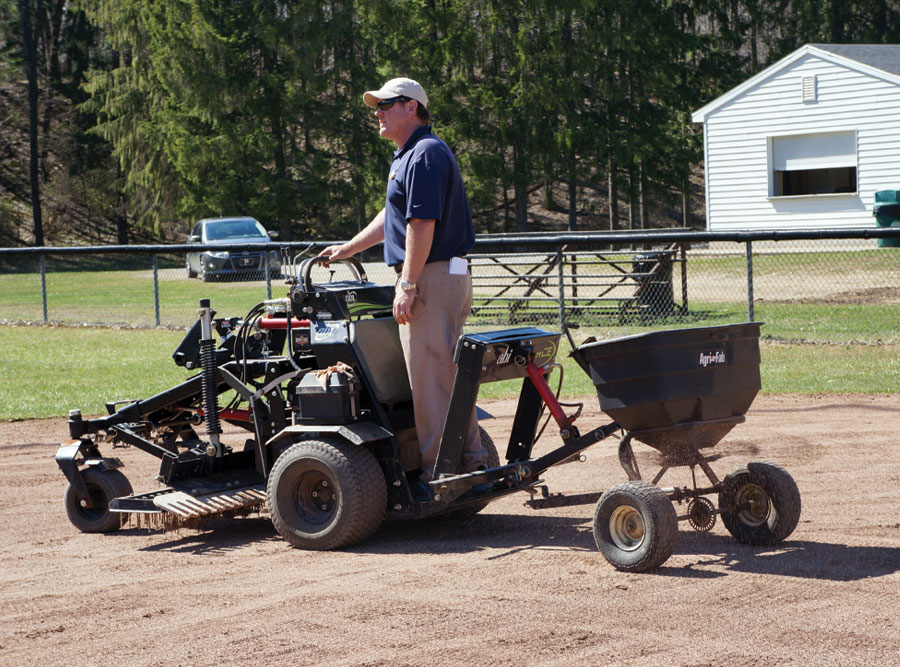

t was Game Five of the 2008 World Series, and the rain was coming down hard. The Philadelphia Phillies led 2-1 in the top of the sixth inning, but B.J. Upton of the Tampa Bay Rays stood on first base, representing the tying run. It seemed inevitable that the game would be suspended soon due to weather, yet somehow the infield was still playable. As Cole Hamels wound up to pitch, Upton took off on the base path, sprinting into the driving rain. He executed a perfect slide, finding no muddy resistance in the infield dirt despite the wet conditions. Upton beat the Phillies catcher’s throw to complete a successful steal of second base and put himself in position to score the crucial tying run.
“It was at that point I knew that we had something special,” says Grant McKnight ’94, founder of DuraEdge Products, who had engineered the infield at Philadelphia’s Citizens Bank Park, his first Major League Baseball client.



In the decade since that World Series game, when the superior rain-absorbing quality of his infield product first debuted on the world stage, McKnight has worked with 22 of the 30 teams in Major League Baseball, including 18 full installations of DuraEdge infields for such American icons as Wrigley Field and Fenway Park, as well as PNC Park in his native Pittsburgh region. At the same time, McKnight has built a thriving company in a section of the state that has struggled for decades with the loss of good industrial jobs.
“This area took a major hit in the early 1990s, when the steel mills shut down,” says McKnight, who lives in Grove City, Pa., and grew up one town south, in Slippery Rock. “This area was heavy industrial, steel, coal. We have a big factory in town that made engines called the Cooper-Bessemer. All those places are gone now.”
McKnight’s father and grandfather were coal miners, but McKnight recalls that, as he went off to Bucknell in the early 1990s, his father told him not to expect the family’s livelihood to be there for him. Even so, after finishing his bachelor’s in business administration, McKnight headed home to help his father with a construction-materials business. Several years later, McKnight began to explore a sideline — providing dirt to baseball and softball diamonds. He describes his early experiments with engineering infield mixes as “throwing some mud up against the wall to see what would stick.”
By refining his soil-formulation ratio and sourcing local clay, McKnight soon recognized that he could provide a unique product. “I started to realize very quickly, in 2001 and 2002, that people kept calling back and saying, ‘Hey, we’re playing on our baseball field after it’s rained.’ I thought it was peculiar that people would call me and really care about red dirt in western Pennsylvania.” Today, most Major League Baseball infields feature western Pennsylvania clay, and almost all Major League teams subscribe to McKnight’s industry-standard formulation for balancing sand, silt and clay.
With little left to prove on the highest professional level, McKnight’s next goal is to expand his business into the high school, municipal and Little League markets. Though a Major League infield costs teams $50,000 before installation, “a Little League facility could probably get into our products and do it right for $15,000,” McKnight says.
“I think you’re going to see a dramatic increase in safety at the high school and parks and recreation levels,” McKnight says. “We’re trying to take what we’ve learned in professional baseball and move it down the line to high school and rec facilities, because those are the fields that have serious safety and playability issues.”
McKnight isn’t just the founder of DuraEdge Products; he’s also a client. In addition to donating several infields to public facilities around Grove City and Slippery Rock, McKnight has installed a scaled-down, 38-foot-base-path infield in his front yard. He decided to build it almost a decade ago, when the eldest of his four sons was 9.
“I asked him what he wanted for his birthday, and he told me he wanted a baseball field to play on,” McKnight says. “So I cut down a tree in my front yard. The field just butts right up next to the street.”
Now that his sons have grown stronger, however, they’re no longer allowed to hit real baseballs on their front-yard field of dreams. McKnight isn’t shy about showing off the dirt mix that helps America’s pastime play on through all kinds of weather, but he’d rather not have to pay for neighbors’ broken windows. “At the end of the day, it’s a really great Wiffle Ball field,” he says.